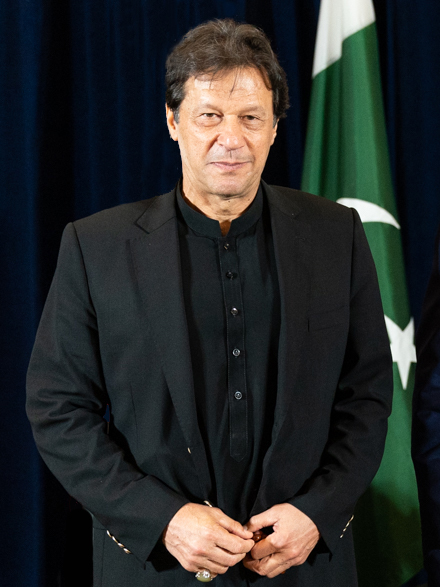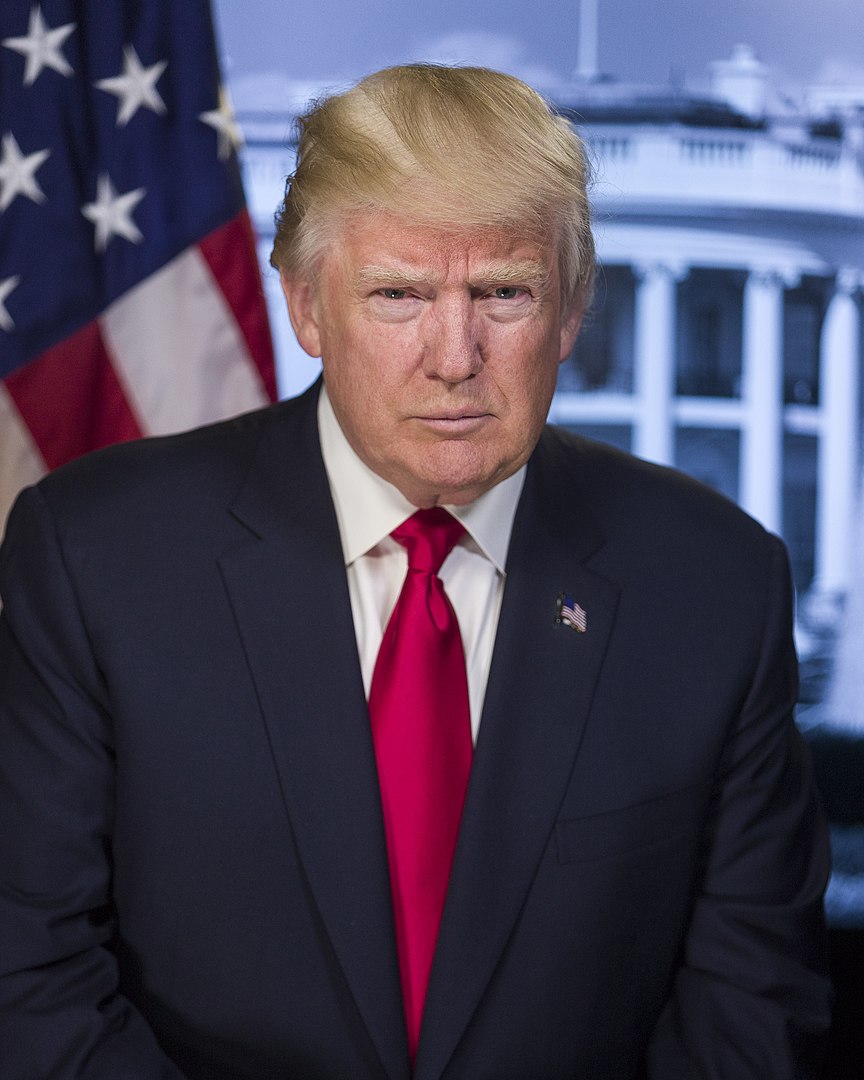ESG, or Environmental, Social, and Corporate Governance, is the latest movement within the economic and financial world - one with the potential to create value for stakeholders at every level. ESG goals are a set of criteria used to measure the sustainability and ethical impact of a company's operations. The “E”, or environmental criteria, describes a company's carbon footprint, waste management practices, or utilization of renewable energy. The “S”, or social criteria consist of a company's labor practices, human rights policies, or impact on local communities. The “G”, or governance criteria, includes a company's board structure, executive compensation, or transparency in financial reporting. While the ESG movement is a new economic initiative, its roots stem from the 1960s when the issue of socially responsible investing (SRI) became relevant due to increased environmental degradation and awareness of social rights. The current framework of ESG, as it stands today, did not materialize until January 2004, when Kofi Annan, the former Secretary General of the United Nations, extended invitations to more than 50 CEOs of prominent financial institutions. This was a joint initiative sponsored by UN Global Compact in collaboration with the International Finance Corporation (IFC) and the Swiss Government. The initiative would set the foundations for integrating the principles of ESG into capital markets. In less than two decades, the ESG movement transformed into a financial juggernaut, with ESG assets set to reach over $50 trillion by 2025.
ESG ratings are determined by third-party, independent companies and research groups; often, companies will also have in-house ESG departments that will issue internal ESG reviews. Each ESG rating agency has its own specific areas of focus: some may prioritize the assessment of a company's efforts in the realm of sustainability (i.e., the carbon footprint and energy efficiency of a corporation), while others place a strong emphasis on social criteria (i.e., labor practices and human rights). Moreover, each agency also employs a different approach when evaluating companies: some focus on a quantitative approach, meticulously analyzing data such as financial performance, while others use a qualitative approach, conducting interviews and on-site visits. The world of index funds has also witnessed a notable integration of ESG principles, giving rise to the emergence of ESG-focused or sustainable index funds. These funds incorporate ESG factors throughout the investment and due diligence process.
Companies and institutional investors are increasingly putting ESG in the spotlight for various reasons, such as the potential for improved financial performance. According to an NYU Stern study, a positive relationship was found “between ESG and financial performance for 58% of the “corporate” studies focused on operational metrics such as Return on equity (ROE), Return on assets (ROA), or stock price.” A meta-analysis that reviewed over 2,000 empirical studies, found a 90% positive or neutral correlation between ESG factors and financial performance. These studies show the financial viability of ESG. Risk reduction is another reason corporations and investors are drawn to ESG. A 2020 survey conducted by the US SIF: The Forum for Sustainable and Responsible Investment found that the primary reason for ESG incorporation was risk reduction. Internationally, companies have implemented ESG criteria to combat both political and social regulatory pressure. For instance, On the 21st of April 2021, the EU commission announced the adoption of the Corporate Sustainability Reporting Directive (CSRD). The CSRD mandates ESG reporting from businesses, regardless of their size. This development cannot be understated, as the EU accounts for roughly 14% of the world’s trade in goods and is one of the largest economies in the world.
As one of the most dynamic and competitive economies in the Middle East, Israel serves as an excellent case study to observe the rise of ESG in the global economy. Being recognized as the "start-up nation," this trend is reflected in the increasing number of Israeli start-ups that have decided to tackle the issues of sustainability and corporate governance. Furthermore, Israeli financial institutions and government agencies have taken significant strides toward fully integrating ESG into the Israeli economy. These efforts demonstrate a commitment to incorporating ESG principles into the core fabric of the nation's economic landscape. The Israeli case study poses two crucial questions that will be explored by this article: can ESG truly lead to long-term sustainable development, create a positive impact on society and the environment, and be economically viable, or are they simply passing trends used to attract investors who are interested in sustainable investing? Moreover, can Israel become a leader in the ESG movement?
The current state of ESG in Israel is still in its infancy, gradually developing and gaining traction. However, the evolution of ESG within Israel has followed a dynamic path, reflecting the country's unwavering commitment to innovation. Two of the bases of legislation regarding corporate governance in Israel are the Partnerships Ordinance, introduced in 1975, and the Companies Law, introduced in 1999. Moreover, pertaining to environmental regulations, Israel has a robust environmental protection framework that includes laws and regulations covering issues from air pollution to water contamination, marine pollution, hazardous substances, packaging, electronic waste, and radiation. Positive developments have emerged within the Israeli government’s approach towards ESG, marking a noteworthy shift in the country's approach to sustainability and equitable development; for example, the Israel Securities Authority (ISA) published its recommendations on ESG reporting back in April 2021. The recommendations called for all Israeli public companies to publish yearly ESG reports based on international standards such as those established by the Global Reporting Initiative (GRI) and Sustainability Accounting Standards.
Regarding economic stimulus measures, the Israeli Ministry of Strategic Affairs and Public Diplomacy, in partnership with the Israeli Securities Authority (ISA), initiated the “Impact Nation” program; this program gives grants of up to 100,000 NIS ($29,952) to companies that include an ESG evaluation in their annual reports. Aside from the “Impact Nation” program, the Israeli government established an ESG index aimed to promote companies’ usage of ESG. Established in 2022 under the auspices of the Israel Innovation Authority (IIA), the program primarily targets the high-tech industry by providing grants to companies that comply with the ESG index. According to the IIA, “the index will gradually be assimilated into all of the authority’s funding mechanisms and will serve as a risk management tool for high-tech companies.” The economic and financial importance of this is profound, as high-tech exports in 2021 amounted to $67 billion and are 54% of Israeli exports.
Aside from governmental initiatives, ESG has taken center stage within financial entities and Corporate Social Responsibility (CSR) reporting organizations. One notable example is Maala. Founded in 1998, Maala is a non-profit corporate membership organization with over 160 companies represented and turnover of approximately 500 billion NIS. It is considered the industry leader in CSR and ESG reporting and rating within Israel. Maala examines six key categories of corporate responsibility and ESG criteria (environmental responsibility, business ethics, work environment, community involvement, corporate governance, and management and reporting.) Maala represents a wide range of industries and is essentially a corporate platform for companies to disclose and showcase their ESG practice. Publicly listed companies that are listed on the index are included in the TA-Maala ESG Index on the Exchange (TASE). Established in 2005 it accounts for around 40% of the total market cap of the TASE. TASE has also assisted in the proliferation of ESG discourse within Israel. For example, in 2020 TASE launched two ESG adjacent indexes the TA-Cleantech (an index “comprised of all shares classified under the cleantech sub-sector and renewable energy sub-sector, which meet the index criteria”) and the TA-125 Fossil Free Index (an index which excludes “shares of Fossil corporations as determined by Life and Environment organization”). Furthermore, in 2022 TASE published its first ESG Report in an attempt to standardize and promote ESG within the Israeli economy.
It is also important to note that Israel is at the forefront of sustainability-related technologies, ranging from advancements in sustainable energy to desalination. One such company is Israel's Eco Wave, a pioneering venture that generates electricity from ocean waves and seawalls. Eco-wave has recently started a planned 5-megawatt project, which is expected to meet 15% of the country's electricity demand. ESG has also permeated the high-tech startup ecosystem in Israel, with the emergence of myriad high-tech startups dedicated to sustainability. These startups have leveraged Israel’s position as a center of high-tech innovation to create and develop sustainable products and solutions. One such company is BeeHero, which has developed a technology-based platform that uses algorithms, Big Data, and an Internet of Things component that enables data collection from beehives alongside environmental information. BeeHero, in essence, provides optimization for the pollination process by identifying at-risk colonies and reducing hive problems through targeted intervention. Another notable example is ESGgo: ESGgo serves as a platform for ESG reporting, allowing for the collection, monitoring, optimization, reporting, and benchmarking of sustainability and ESG data.
Nevertheless, there exists a certain degree of skepticism surrounding the feasibility of implementing ESG and its financial viability. In an interview with the author of this article, Sandrine Bernstein, the founder of Better Investments SB LTD and a seasoned financial expert with three decades of industry experience, held a particularly skeptical stance toward ESG. When asked about the significance of ESG initiatives and whether they are here to stay or merely a passing fad, Bernstein expressed a firm conviction, stating, "I think it’s very much a trend." Bernstein argues that the objectives of ESG initiatives can potentially undermine the fiduciary duty of individuals or organizations. By prioritizing ESG goals, there is a concern that the focus may shift away from maximizing financial returns for shareholders. Bernstein posited, “I think we have to remember that the goal of a firm is really to maximize returns for their shareholders.” According to Bernstein, investors will continue to favor high-dividend stocks, even if they typically do not align with ESG criteria. As per Bernstein's assessment, “A lot of investors still like to invest in high dividend stocks. For example, if you really look at the high dividend world, a [large] majority [consists of] oil, liquor, coal, and tobacco.”
Furthermore, Bernstein highlights the presence of several gaps in the criteria of ESG ratings and their practicality. For instance, Bernstein highlights a profound alarm regarding the absence of standardized and consistent frameworks and rating systems, which can lead to widespread manipulation and misuse. (Important Note: This interview was conducted before International Sustainability Standards Board (ISSB) released the IFRS Sustainability Disclosure Standards which provide a roadmap to standardization of ESG disclosure). While being interviewed, Bernstein remarked, “Within the rating system and industry, you can have quite a lot of manipulation coming out of it.” Bernstein’s sentiments are not without credence, in 2022 the US Securities and Exchange Commission (SEC) charged Goldman Sachs for failing to “follow its policies and procedures Involving ESG Investments”.Furthermore, Bernstein believes that a significant pitfall of ESG is that it is a phenomenon primarily exclusive to western-oriented economies and markets. Bernstein stated:
“I think the first thing, which is a fact and it's pure numbers, is the world population today is around 8 billion people. The global population has grown exponentially in the past 50 years and very fast. More than one-third of that population is in India and China. India and China, quite frankly, are not very active in terms of ESG. As a result, I do not believe you can seriously advance in terms of ESG for as long as these two countries will not be active participants. That's a simple fact of numbers.”
Other experts are in agreeance with Bernstein. According to a Barron’s report, “Many ESG investors already shun China, because the stocks generally don’t have high ESG ratings.” While Bernstein is of the opinion that ESG is a fad, she does believe that Israel is in a unique position to capitalize on it, specifically in the realm of technological advancements. Bernstein mused that “Israel can really be at the forefront of ESG. You see clearly how fast Israel develops in terms of all sorts of technology. And there's clearly an emphasis that a lot of those technologies being developed by Israel today are with a focus on the environment.”
Additionally, Bernstein recognizes and believes in the potentially transformative power of equitable development and the promotion of social justice advocated within ESG principles. Bernstein believes that Israel is at the forefront when it comes to these principles. During the interview, Bernstein stated that “in terms of diversity, I think Israel has done very well at that level and certainly a lot better than many countries, including the U.S. and Europe.” Bernstein, in particular, highlights the representation of women in high-level positions within the workplace. “Already early on, Israel was able to have women executives of the major banks, and that's pretty amazing.” Bernstein is also of the opinion that Israel is in the position to serve as a testing bed for these principles and later a leader in exporting them to developing nations. Bernstein opined, “I think this is something which hopefully they can work to export.”
However, other experts are more optimistic about the future of ESG and their integration into not only the Israeli economy but the global economy at large. Dr. Shiri Zemah Shamir, an accomplished economist who heads the Economic-Sustainability track at Reichman University School of Sustainability, believes that ESG could potentially revolutionize both the Israeli economy and the global economy. According to Dr. Shamir, “Israel has been placing a growing emphasis on ESG factors. The Israeli government, in collaboration with [other] entities, has been actively working to encourage the adoption of ESG practices and transparency throughout the nation.” Dr. Shamir believes that the aim of these projects “is to bring Israeli businesses in line with global standards and attract investment.” This is extremely important as recent socio-political developments within Israel have stymied the flow of foreign investment into the Israeli economy. This idea is not without precedent, as academic literature has suggested that ESG initiatives may be helpful “for firms in developing countries to capture more cross-border investment.”
In an interview by this author with Dr. Shamir stated that ESG initiatives are particularly important for attracting investment from what she describes as “mega-funds”. Dr.Shamair defines “mega-funds” as “private equity funds that hold the highest amount of assets under their management within the global economy.”). In fact, Dr. Shamir emphasized the importance of ESG reporting in attracting large multinational mega-funds, “multinational mega-funds like BlackRock, which invest in the Israeli capital market, expect Israeli companies included in their portfolios to provide ESG reports.”
Moreover, Dr. Shamir, believes that “the growth of the global ESG field can be partially attributed to mega funds, which according to Dr. Shamir, “encounter difficulties in balancing risks within their extensive portfolios.” Moreover, Dr. Shamir holds a firm conviction that the competitiveness of countries in the global marketplace is impacted by ESG considerations. In particular, Dr. Shamir noted that “ESG integration has a notable influence on global trade and investments. It directly affects a country's market access, regulatory landscape, investor preferences, innovation capabilities, and risk management strategies. Prioritizing sustainability and responsible practices strengthens a country's competitiveness in the international arena.” Additionally, during our discussion, Dr. Shamir also highlighted a few recent developments and emerging trends in the field of ESG that she believes will have significant implications for both the Israeli and global economies. Including “the implementation of mandatory ESG reporting, the rise of green bonds and sustainable finance, increased focus on climate risk assessment and disclosure, the transition towards a circular economy, and the growing importance of social impact investing.” Dr.Shamir stated that in the case of Israel as well as other countries, “embracing these trends can drive competitiveness, access to capital, and long-term economic resilience.”
ESG initiatives have the potential to transform the global economy for the better, despite the controversies and concerns surrounding them. As the common adage suggests, ESG principles could enable companies to "do good while doing well." In fact, ESG initiatives can deliver win-win outcomes for companies, investors, and society at large. Empirical studies at the macroeconomic level have provided evidence supporting the positive impact of ESG projects on the economic well-being of a country. A paper published by the University of Oxford found that “across the sample group, an increase of firms’ ESG performance in a country is associated with a positive, statistically significant effect on living standards in that country, as measured by GDP per capita.”
The geographic position of Israel allows for the possibility to act as a bridge between East and West and therefore as a template for how to implement ESG principles within a multitude of economic frameworks. Furthermore, the “startup nation” is a significant hub for venture capital, thus opening possibilities for technological-based solutions within the context of sustainability. Moreover, Israel's diverse population, comprising Jews, Arabs, and other minority groups, can play a significant role in advancing ESG principles by serving as a template to foster inclusivity and equity within society and a firm. If successfully implemented, a hypothetical Israeli model can serve as a template on how to successfully create a more equitable and sustainable economy.
Despite facing resistance and skepticism, ESG has the potential to revolutionize the global economy by creating a more virtuous world, thereby benefiting society at large. Israel, in particular, has the opportunity to be at the forefront of this movement. With prominent figures in the global economy, such as Larry Fink, the CEO of BlackRock, becoming vocal advocates for ESG, as well as forecasts predicting that ESG investments will reach $30 trillion by 2030, it is evident that there will be a march towards ESG initiatives. Taking everything into account, Israel's potential to become a significant player in the ESG ecosystem becomes apparent if it were to receive adequate investment and attention. Israel, as a leader in technological development and a global exemplar in promoting inclusivity and forward-thinking workplaces, possesses an untapped potential as an ESG powerhouse.
Max Sigal is a driven student at Reichman University and an IGI (Investment Group Israel) member. Max is passionate about creating positive change through sustainable practices and leveraging business for social and environmental impact. Through his studies and personal initiatives, Max aspires to contribute to a more sustainable and equitable world, combining his knowledge of government and business to drive meaningful progress.








